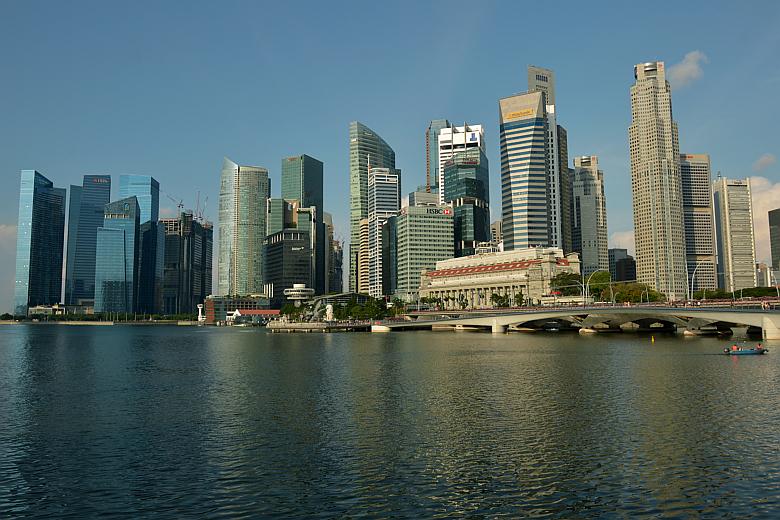3 ways Singapore's approach towards training workers and redesigning jobs is changing
Sign up now: Get ST's newsletters delivered to your inbox

Jobs are being created and made redundant so quickly and the economy disrupted so frequently that it has become a difficult task to form major policies for training and retraining workers, and designing jobs for them.
PHOTO: ST FILE
SINGAPORE - Unlike, say, infrastructure policies where outcomes are literally concrete, the best laid plans can produce nebulous results when it comes to getting people ready for the new world of work.
Jobs are being created and made redundant so quickly and the economy disrupted so frequently that it has become a difficult task to form major policies for training and retraining workers, and designing jobs for them.
Persuading workers that they need to reskill when they are busy working and have not lost their jobs is also an uphill task. Pushing companies to train their workers when they are facing challenges themselves is equally hard.
This week's Insight looks at how major policies such as SkillsFuture and Adapt and Grow are changing the approach to jobs and training to prepare Singaporeans and Singapore for the future economy.
1. The nexus between school and work
The relationship between education and employment used to be more straightforward. Study hard in early life to get a good job later.
But the increasing pace of technological change has meant that knowledge and skills are sometimes made obsolete soon after they are acquired, and lifelong learning and training is now seen as the way forward.
For workers, it means updating their skills over and over again throughout their career. And for companies, it means investing more in training.
SkillsFuture Singapore (SSG) and Workforce Singapore (WSG) are the two statutory boards tasked to build this stronger, sustained link between education and employment.
While SSG coordinates SkillsFuture, which aims to raise workers' immunity to the effects of disruption, WSG coordinates Adapt and Grow, which seeks to treat the pain of transitions into new jobs and industries.
WSG chief executive Tan Choon Shian likens it to the Health Promotion Board, which pushes for more healthy lifestyles, and the system of hospitals, which provide intensive, interim help.
To drive home this link between education and employment, the two statutory boards even share the same offices and website, said SSG chief executive Ng Cher Pong.
2. From broad-based to targeted
In an environment where disruption affects the various sectors unevenly, measures to help workers have become more "targeted and surgical", said Minister in the Prime Minister's Office Chan Chun Sing.
"Horizontal policies" which are broad based and foundational are still required, but they will no longer lift all workers up easily, and some people will need more specialised help, he added.
So the Government is moving towards more targeted programmes that allow for some customisation to address the needs of workers and companies in different sectors.
WSG has launched more than 100 Professional Conversion Programmes that help professionals prepare for new jobs in the new economy, even within the same company.
Last July, it also started a programme dedicated to helping job seekers who face emotional issues.
3. Changing mindsets, shifting culture
The aim of SkillsFuture is not just training alone, but also to effect a cultural change.
Four years since Deputy Prime Minister Tharman Shanmugaratnam first mentioned the initiative, it has evolved and those involved now describe it as a movement.
"We hope eventually to see a shift in societal culture," said Education Minister (Higher Education and Skills) Ong Ye Kung, who spearheads the initiative.
If lifelong learning becomes a way of life, having to constantly retrain and reskill will hopefully no longer seem like a daunting task for workers, so the theory goes.
Mr Ong said the work of changing mindsets starts in schools, which is why SkillsFuture is parked under the Ministry of Education as an integral part of the education system.
The Government, unions, trade associations and business chambers have also been working with companies on industry transformation maps which chart the changes expected in 23 key industries over a five-year period, and identify the skills required.
Minister in the Prime Minister's Office and Second Minister for Manpower Josephine Teo said this will help to create a culture in which businesses are always transforming.


